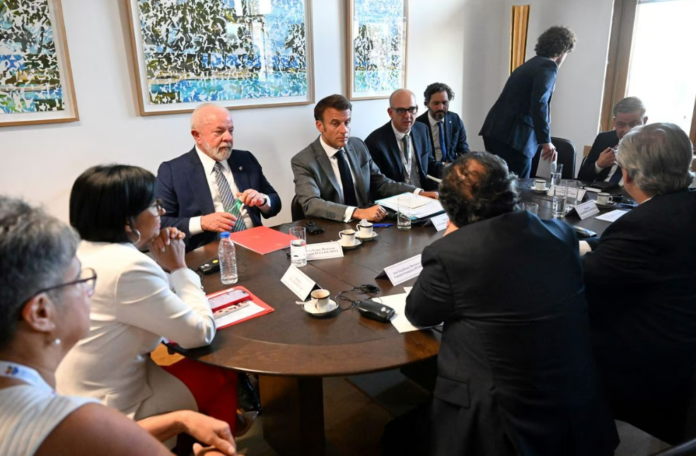Leaders from the European Union, Latin America and the Caribbean were struggling on Tuesday to agree on a joint statement on the war in Ukraine, with some Latin American countries resisting EU pressure for a clear condemnation of Russia, according to Reuters.
The wrangling threatened to overshadow the summit in Brussels as the EU tries to revitalise relations with Latin America as part of a geopolitical shake-up prompted by Russia’s war on Ukraine and growing wariness of China.
The EU had aimed to include condemnation of Russia’s invasion of Ukraine as part of a broader declaration setting out the leaders’ conclusions of the summit. But as the talks entered their second day, no agreement had been reached.
Countries with close political and economic ties to Russia, such as Cuba and Nicaragua, were resisting attempts to include language condemning Russia, according to officials familiar with the negotiations.
A draft text seen by Reuters showed a paragraph that condemned “the ongoing war against Ukraine” and referred to
U.N. resolutions that „deplore in the strongest terms the aggression by the Russian Federation” had been scored out.
The document merely referred to “specific national positions” of the countries represented at the summit, which brought together some 50 leaders from EU and the Community of Latin American and Caribbean States (CELAC).
Arriving at the summit on Tuesday, Irish Prime Minister Leo Varadkar said the communique had to be “very clear on Ukraine, this is a war of aggression.”
“There were talks late last night on the language, almost every country was able to sign up to a text that was clearly supportive of Ukraine, its right for independence, for freedom. One or two held out. Let’s see again this morning,” he said.
“It’s sometimes better to have no conclusions at all than to have language that doesn’t mean anything but we’re not at that point yet,” he added.
Luxembourg Prime Minister Xavier Bettel said the communique could not be used to “rewrite history.”
“The fact is that Russia aggressed Ukraine … we have to face the reality,” he told reporters.
He suggested the statement could end up saying that some specific countries did not agree with the language on Ukraine.
“We still can have a remark that says nearly all the countries accept (the language) … It’s a shame if we cannot agree, but I’m not here to rewrite history,” he said.
Chile’s Foreign Minister Alberto van Klaveren said his government regretted the dispute.
“We’re very sorry for the situation really and we’re very surprised that there are members of our group which oppose any resolution concerning the war in Ukraine,” he said.
“We think it’s a war of aggression; that’s the position of Chile.”


